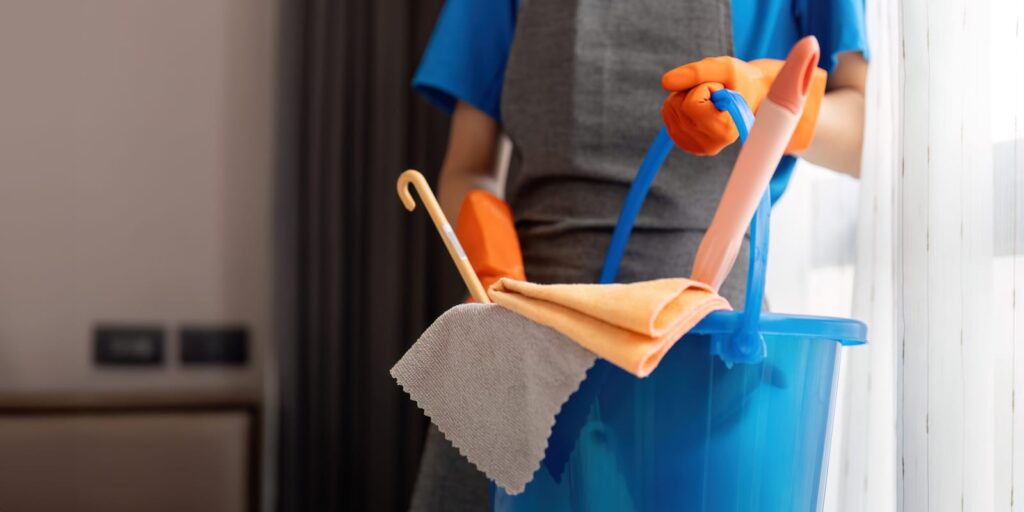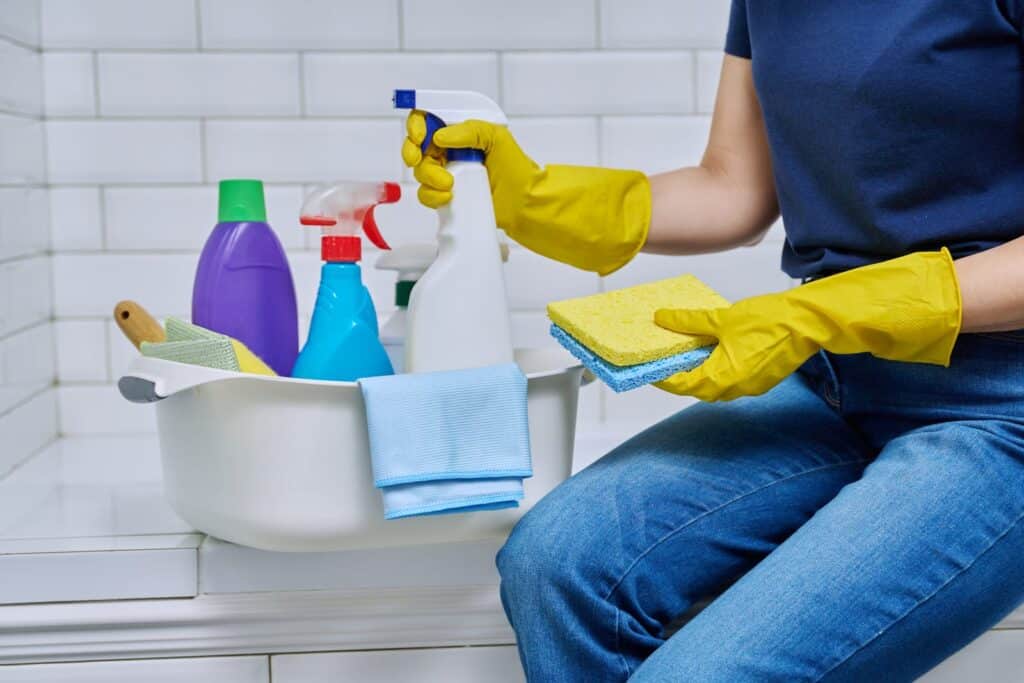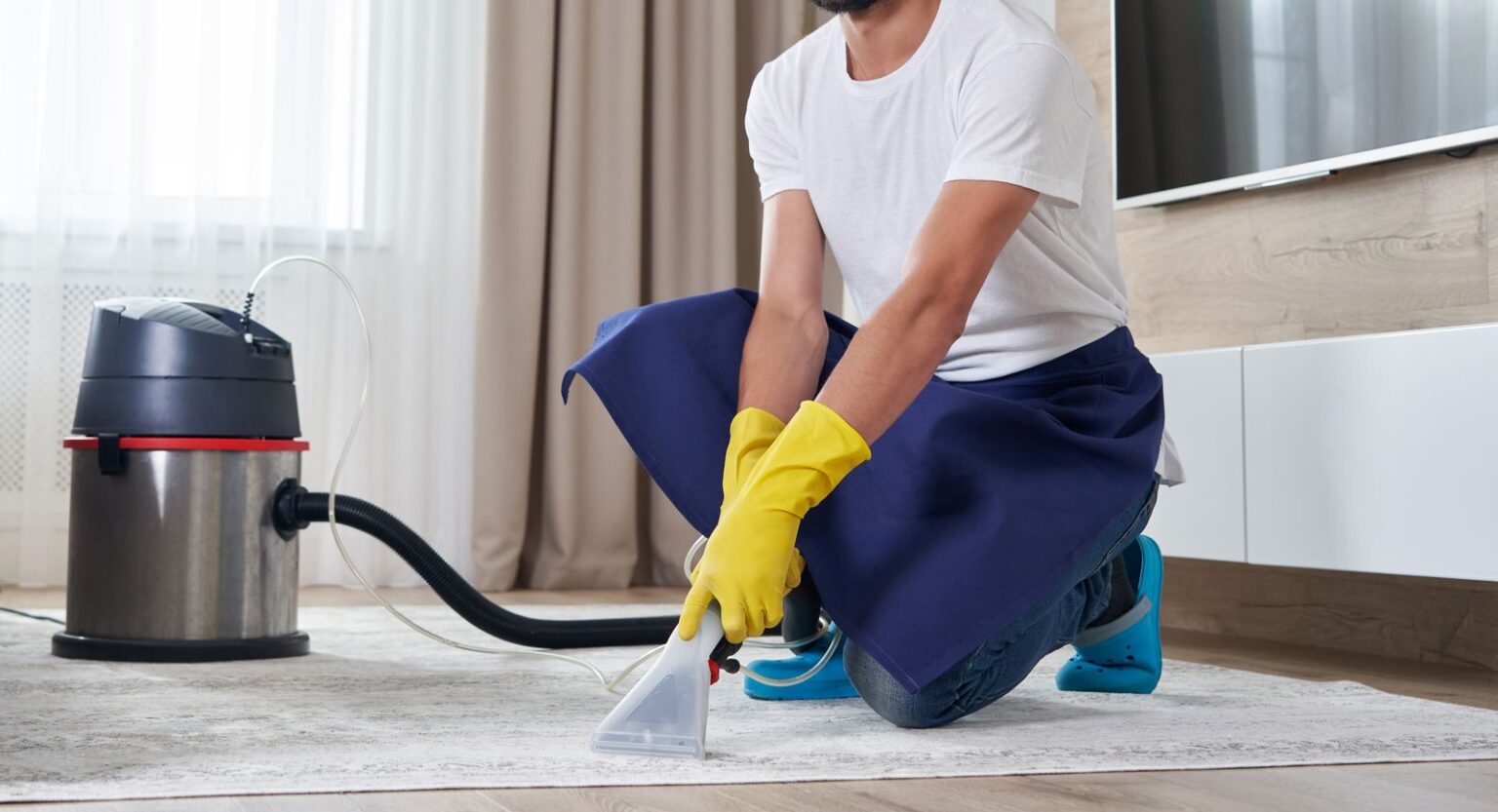Ever thought about turning your knack for cleaning into a thriving business? Starting a cleaning business is one of the most accessible and cost-effective ways to become your own boss. With minimal startup costs, it offers flexibility and the potential for substantial growth if approached strategically.
To start your own cleaning business, focus on defining your services, budgeting for supplies and transportation, and building a reputation through excellent customer service. Begin small, stay consistent, and expand as demand grows.
1. Research and Define Your Market
Identifying your target market is the first essential step in starting a cleaning business. Determine whether you’ll focus on residential clients, like homeowners or renters, or commercial ones, such as offices and retail spaces. Each segment comes with different needs—residential customers may want regular house cleaning, while businesses often require after-hours services.
Study the competition in your area to understand what others offer and where gaps exist. Look for underserved areas or niches; for example, specialized eco-friendly cleaning can attract environmentally conscious clients. Analyze pricing models too—what are local rates? Are competitors charging hourly or per service?
Understand potential client pain points by reading online reviews of similar companies. Complaints about unreliable cleaners or inconsistent results could highlight opportunities to stand out.
Finally, assess demand geographically within your community. Target locations with households earning disposable income or areas filled with small-to-medium-sized businesses that regularly outsource their cleaning tasks.
2. Create a smart budget

Building a cleaning business requires careful budgeting to ensure profitability and sustainability from the start. Begin by listing all start-up costs, such as cleaning supplies, equipment, transportation expenses, insurance, licensing fees, marketing materials, and uniforms (if necessary). These initial investments can range from €500 to €5,000 depending on the services offered.
It’s essential to factor in ongoing operational costs like fuel for travel between clients’ locations or replenishing consumable products like detergents. For example, residential cleaners might frequently need general-purpose sprays and microfiber cloths while commercial cleaners could require floor polishers or industrial vacuums.
Allocating funds for unexpected expenses is smart financial planning. Equipment repairs or client cancellations without notice can disrupt income flow unexpectedly. Many recommend saving at least 20% of revenue specifically for emergencies.
Finally, consider pricing your services competitively based on market analysis. Striking the right balance ensures you cover expenses while remaining attractive to potential customers in your area.
3. Get legal requirements in order
Starting a cleaning business requires meeting key legal requirements to ensure compliance and protect the business from liability.
Registering the business with state or local authorities is crucial. Entrepreneurs can choose between forming an LLC, corporation, or general partnership depending on their needs. An LLC is particularly popular because it separates personal and business assets while providing liability protection.
Obtaining necessary licenses and permits comes next. Most states require businesses to have a standard license—some may also mandate specific ones like vendor’s or contractor’s licenses based on services provided. If operating under a name that isn’t your legal name, registering for a “Doing Business As” (DBA) name becomes essential.
Properly handling these steps ensures the business operates legally, avoids fines, and builds customer trust.
4. Set clear service packages and pricing

Defining service packages and pricing upfront helps attract clients looking for clarity. It also ensures customers know exactly what they’re paying for.
- Offer Tiered Pricing: Create multiple levels of services to accommodate different budgets. For example, a basic package like “Silver” might include essential cleaning tasks such as kitchen counters, bathroom surfaces, vacuuming, and mopping floors. Higher-tier options like “Gold” or “Platinum” could cover extras including window washing, appliance deep-cleaning (e.g., ovens), vent dusting, or grout scrubbing.
- Provide Customization Options: Allow clients to add specific services based on their needs. This flexibility appeals to homeowners needing one-time specialty cleanings—like post-construction cleanup—or businesses desiring recurring custom schedules.
Being transparent about costs fosters trust. Include detailed descriptions in your pricing structure so potential customers can easily compare offerings while feeling confident about value received per dollar spent.
5. Start marketing strategically
Building a successful cleaning business requires smart, targeted marketing strategies that resonate with potential clients. Businesses should start by establishing an online presence. A professional website showcasing available services, pricing options, and glowing customer reviews can draw in new customers effectively. Including easy navigation and contact forms helps convert visitors into paying clients.
Leverage social media platforms like Facebook or Instagram to showcase before-and-after cleaning visuals, post testimonials, and engage directly with your target audience. Encouraging satisfied customers to leave positive reviews on Google Business or Yelp boosts credibility and trustworthiness—two critical factors for attracting new clientele.
Offering introductory promotions and discounts, such as 20% off the first service, can encourage hesitant prospects to try out your offerings. Similarly, distributing flyers locally or advertising through community bulletin boards targets nearby residents cost-effectively.
Don’t forget word-of-mouth referrals! Encouraging loyal customers to recommend your services—perhaps with referral bonuses—increases visibility while reinforcing genuine trust among peers.
